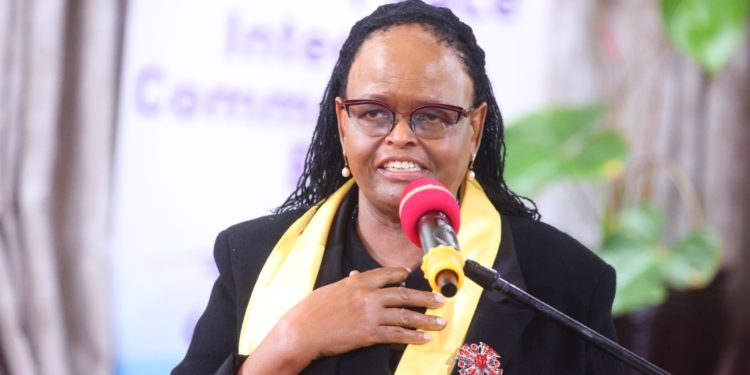Chief Justice Martha Koome has appointed a three-judge bench to hear and determine the petition challenging the impeachment process of Deputy President Rigathi Gachagua. The bench will be presided over by Justice Eric Ogola, alongside Justices Anthony Mrima and Freda Mugambi.
The appointment comes after High Court Judge L N Mugambi certified the case as raising substantial questions of law, warranting the attention of an expanded bench. The petition, filed under case number E522/2024, questions the constitutionality of the impeachment process initiated against Deputy President Gachagua in the National Assembly.
In his ruling, Justice Mugambi highlighted several key issues that necessitated the formation of a larger bench. These include concerns about the limited duration of the impeachment process, the adequacy of public participation, and the constitutional validity of the standing orders used by the National Assembly.
“Considering the immense public interest this matter has generated and being the first of its kind in Kenya where the Deputy President of the Republic is being removed by process of impeachment, it is my considered opinion that this matter deserves the input of the Bench,” Justice Mugambi stated in his ruling.
The petition raises questions about the constitutionality of Standing Order 64(2) and (6), which provide a 12-day timeline for the entire impeachment process. The petitioners argue that this short duration impedes “adequate and meaningful public participation, a critical constitutional requirement.”
Another significant issue to be addressed by the bench is whether the allegations subject to impeachment should be circulated to the public with or without the response of the person being impeached. The petitioners contend that the absence of the Deputy President’s response could compromise the public participation outcome and infringe on his right to fair administrative action and a fair hearing under Articles 47 and 50 of the Constitution.
The appointed bench will also consider whether the current Parliament is properly constituted to carry out the impeachment process, in light of a previous Supreme Court Advisory Opinion.
Furthermore, the judges will examine whether the court’s jurisdiction under Article 165(3) extends to scrutinizing the material relied upon for the impeachment, to determine if the threshold to support the allegations was met in both the National Assembly and the Senate.
Justice Mugambi emphasized the importance of this case, stating, “It is necessary for the citizenry of this Country know whether the current state of law allows them adequate opportunity to participate meaningfully in the process of the removal of their Deputy President.”
The ruling also consolidated several related petitions with the main case, including E509/2024, E537/2024, E528/2024, E525/2024, and E506/2024.
This case marks a significant moment in Kenya’s constitutional history, as it is the first time a sitting Deputy President has faced impeachment proceedings. The outcome of this petition could set important precedents for future impeachment processes and clarify the constitutional requirements for such proceedings.












